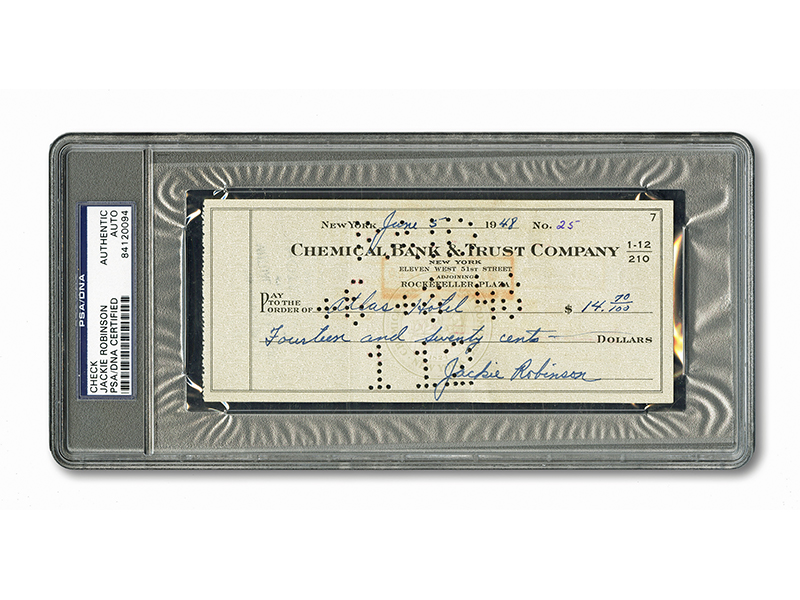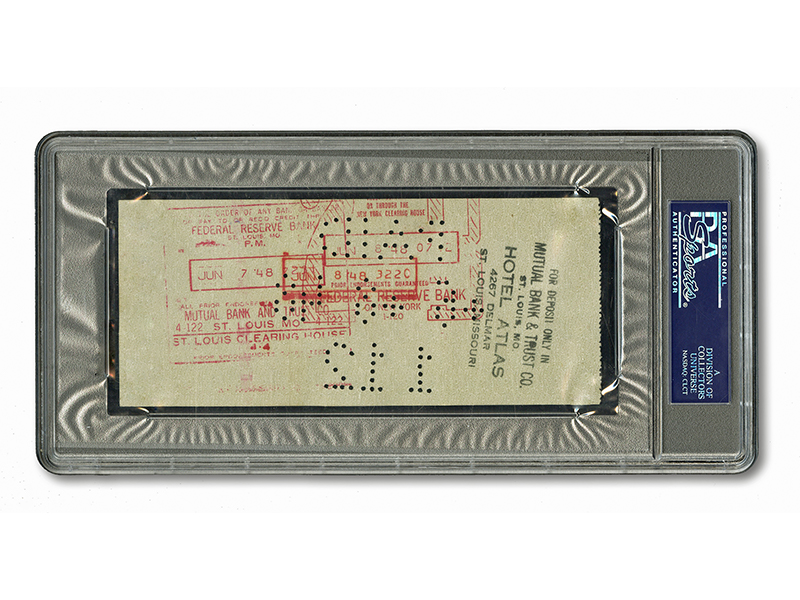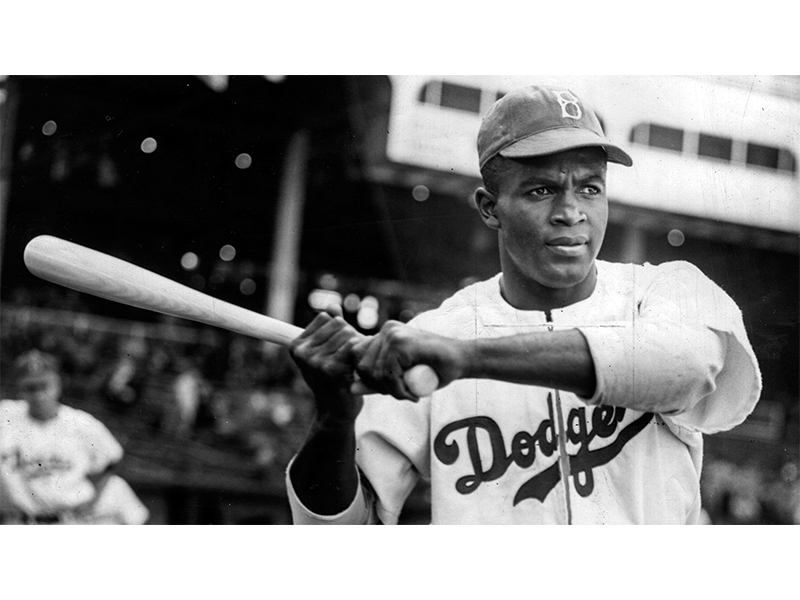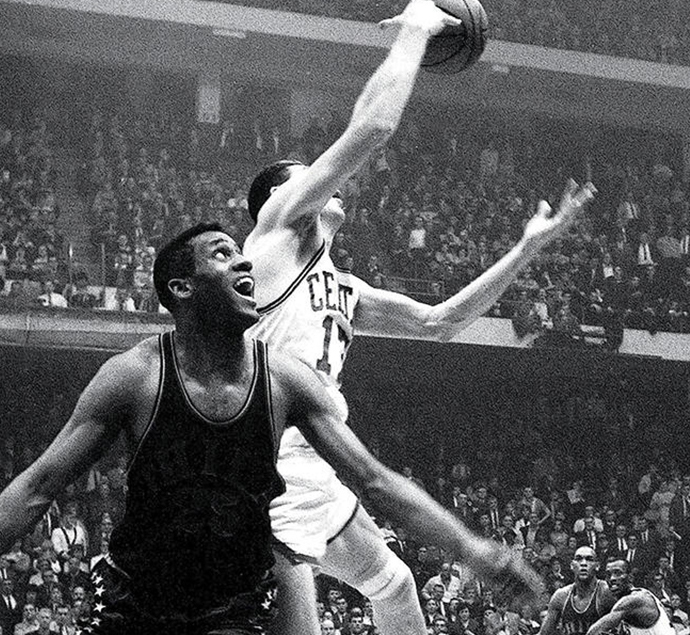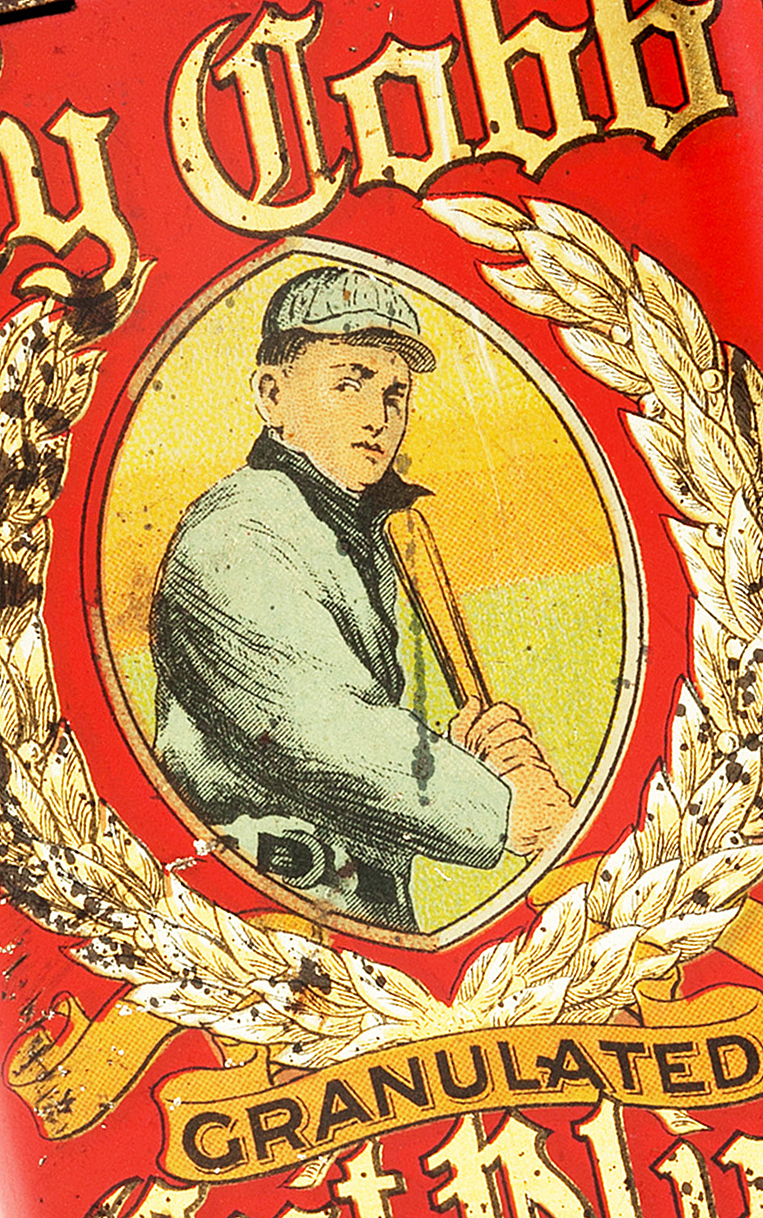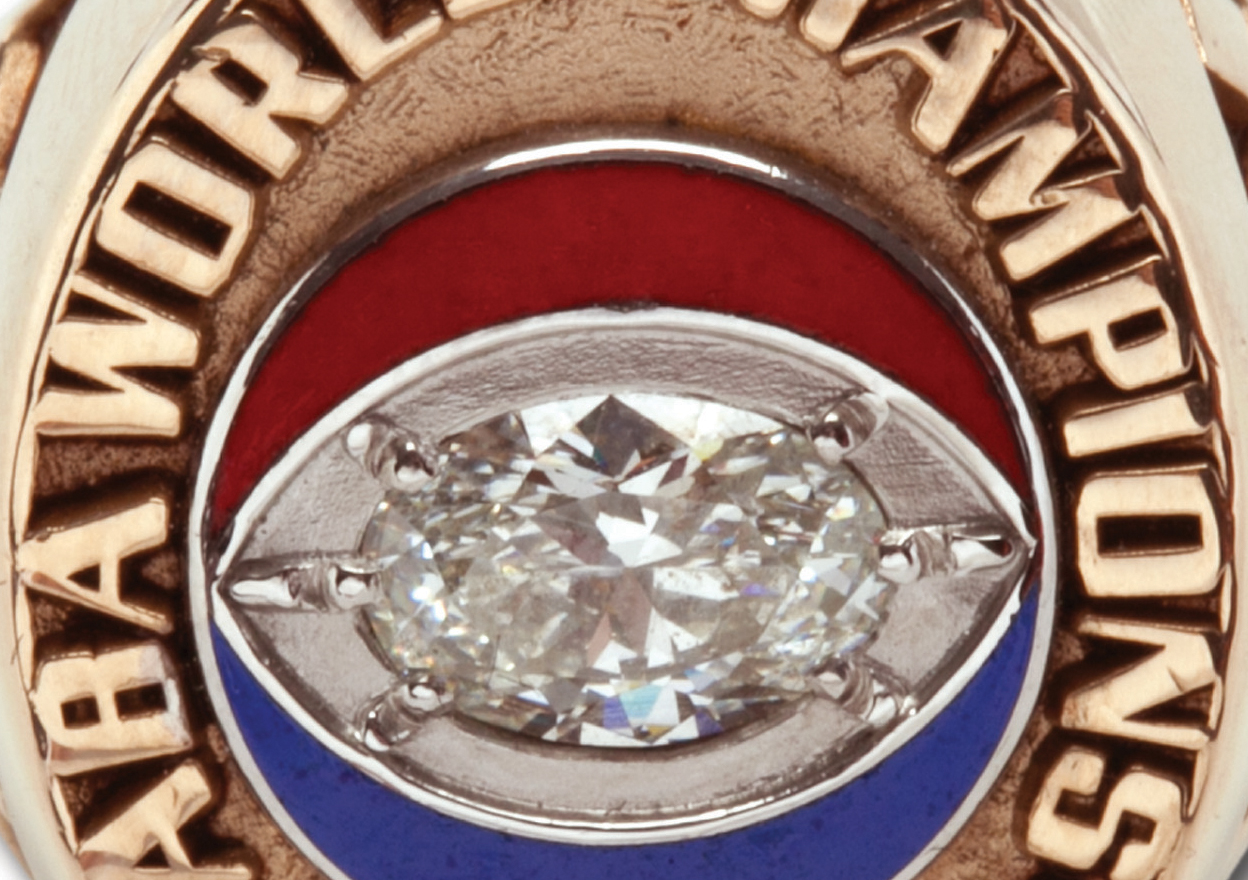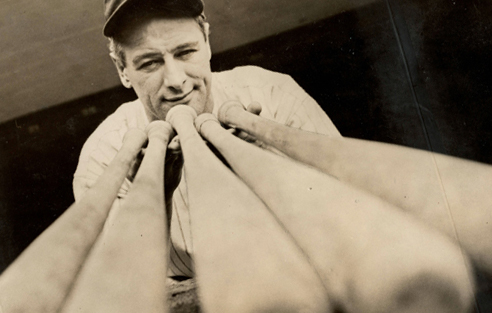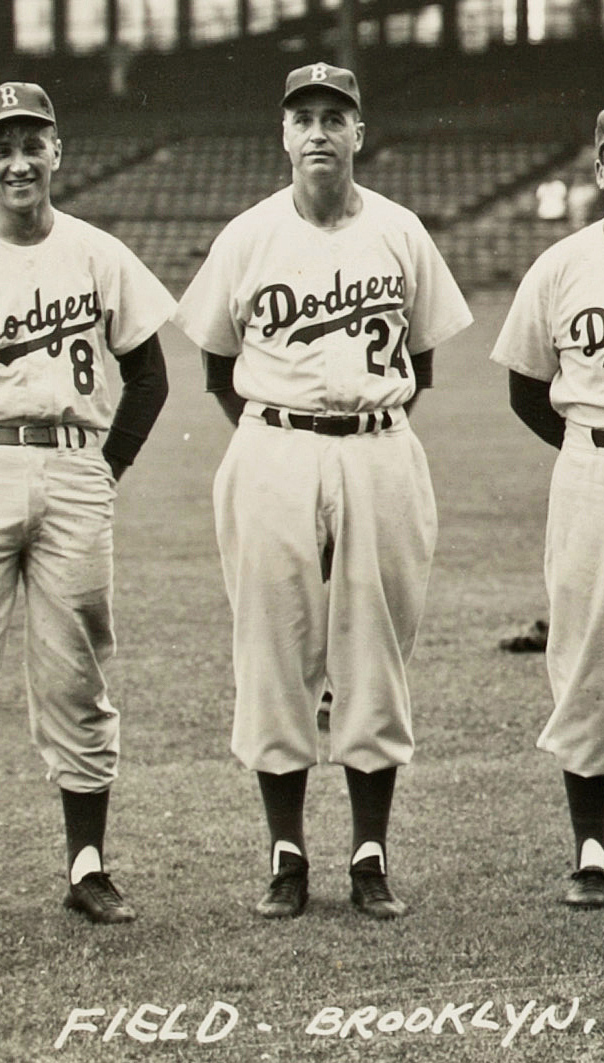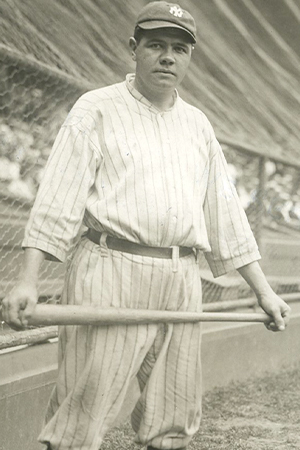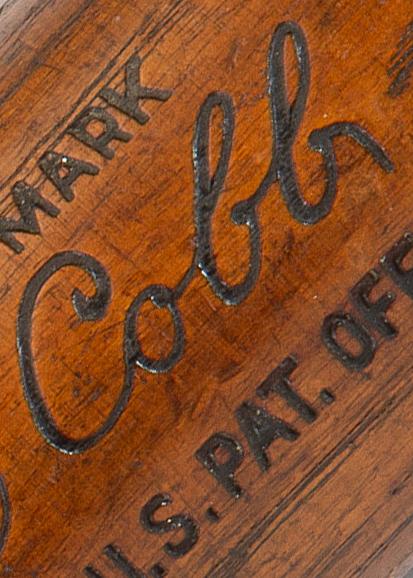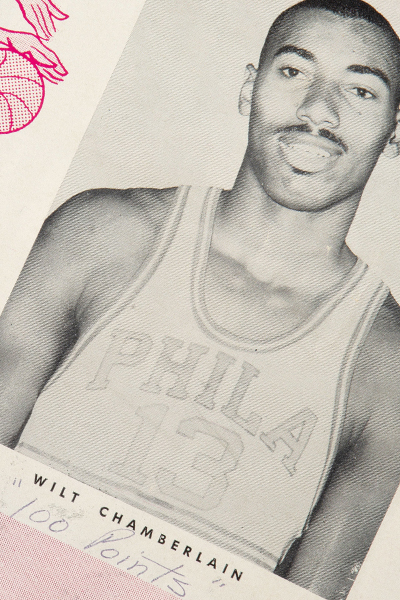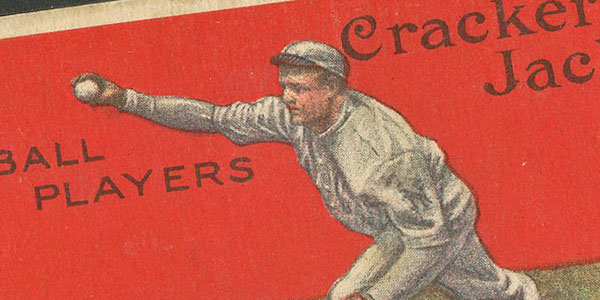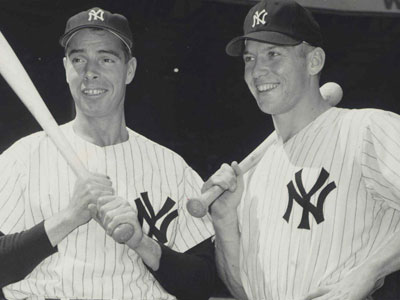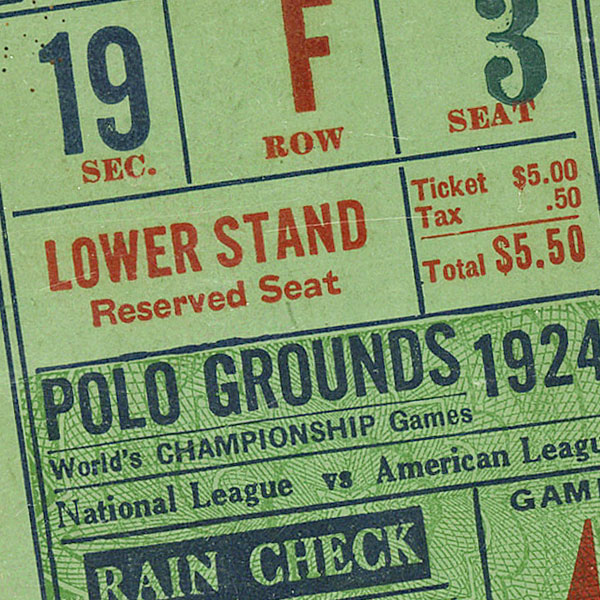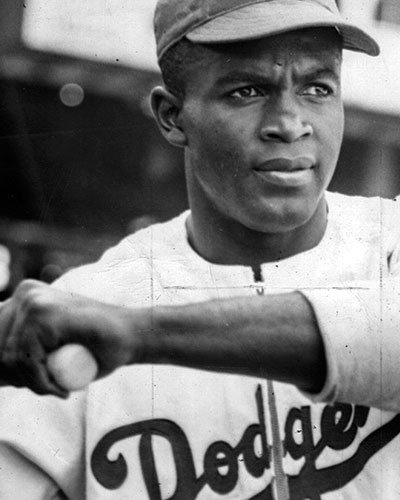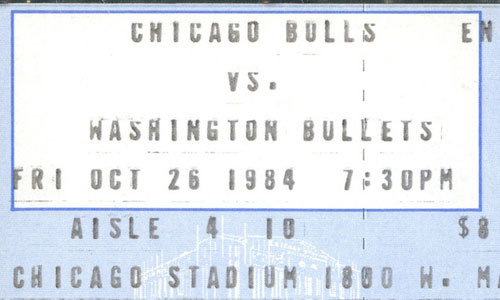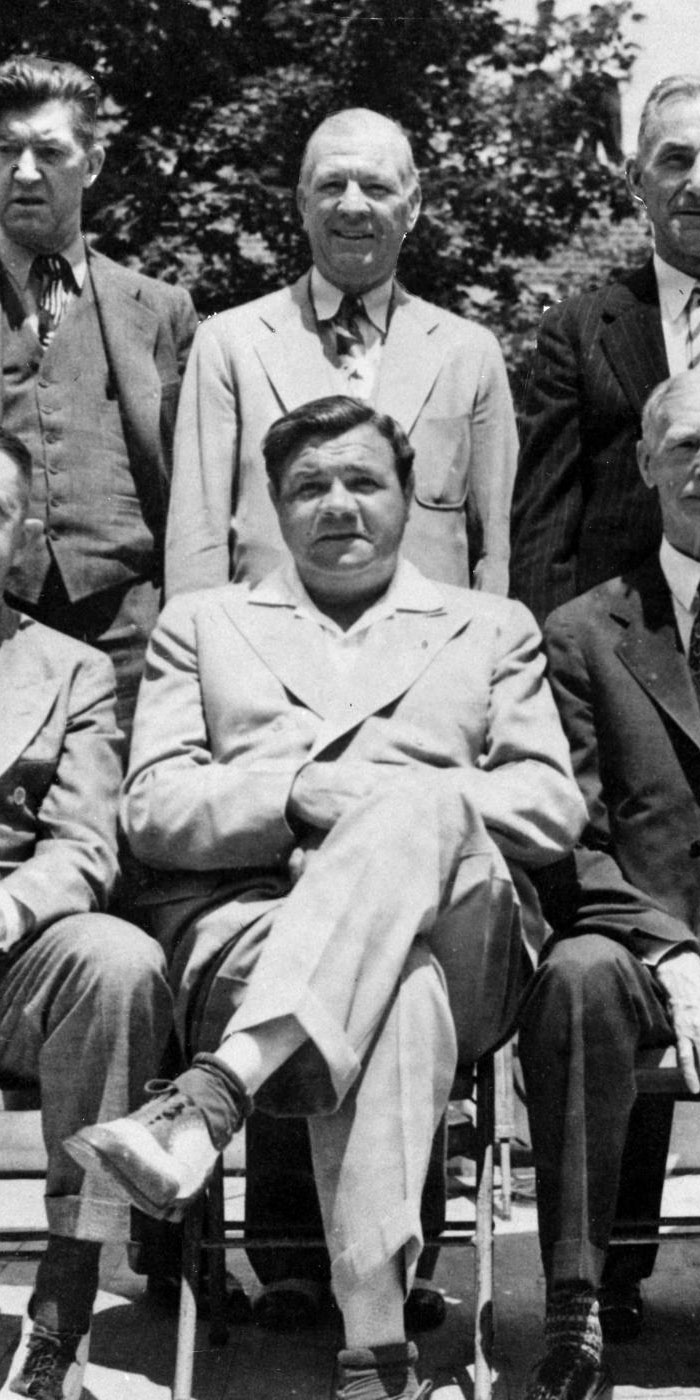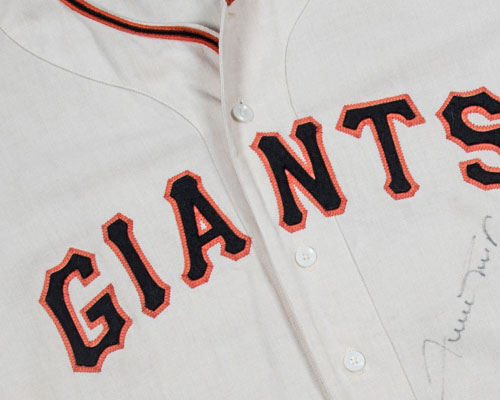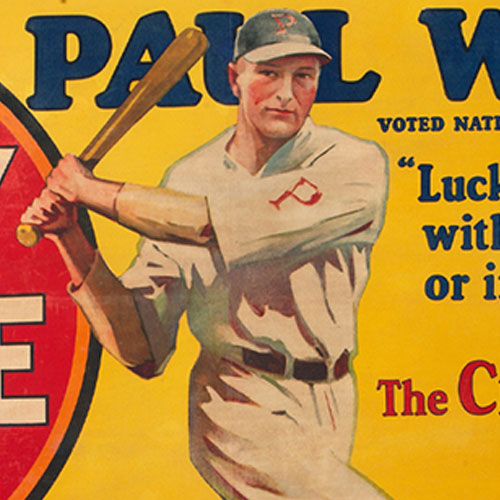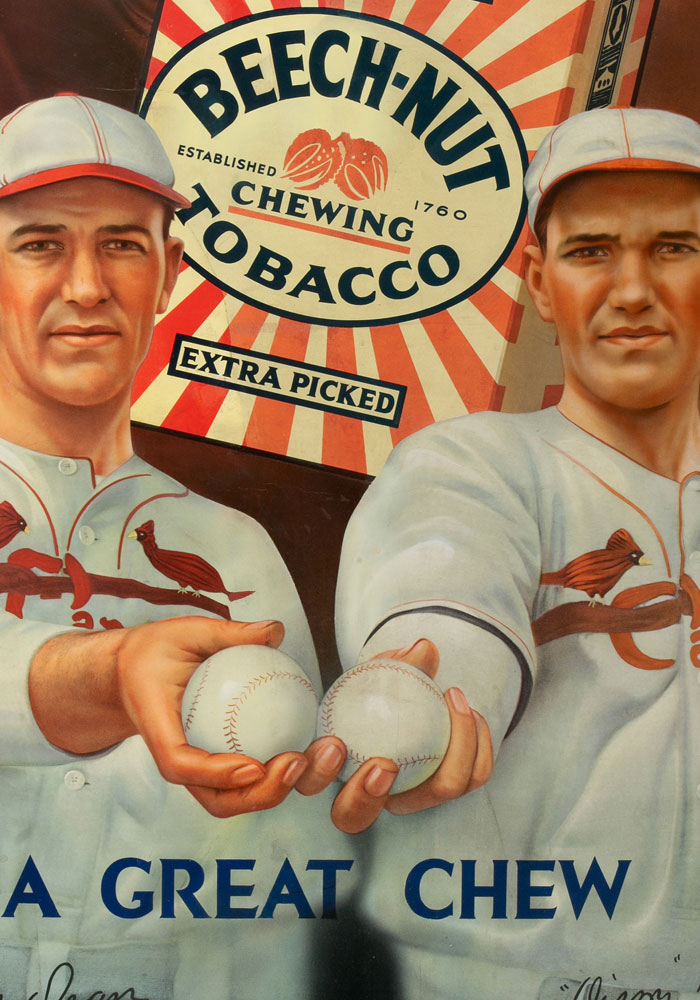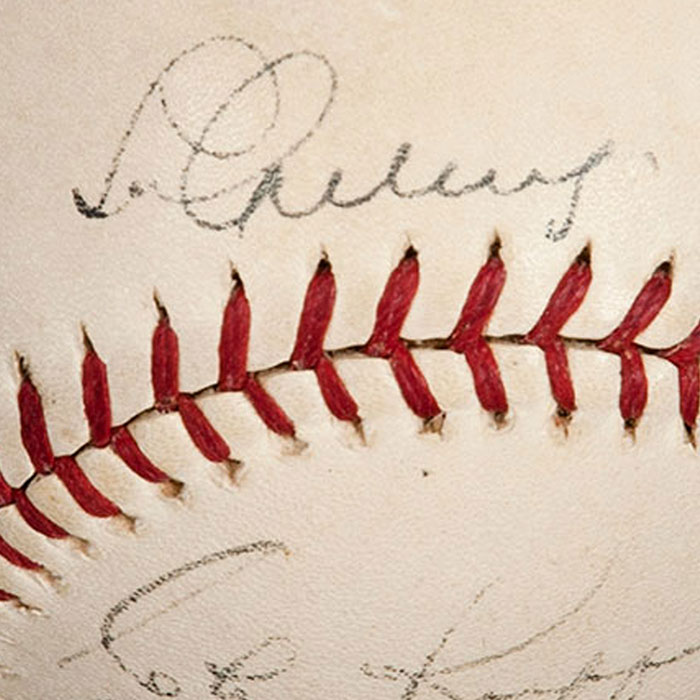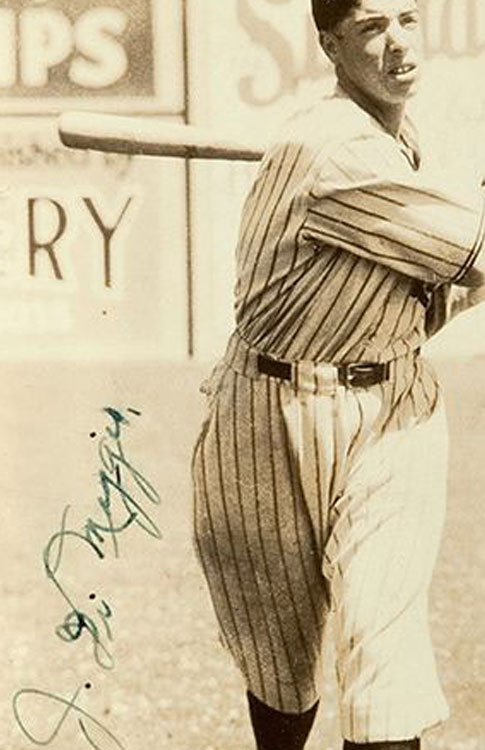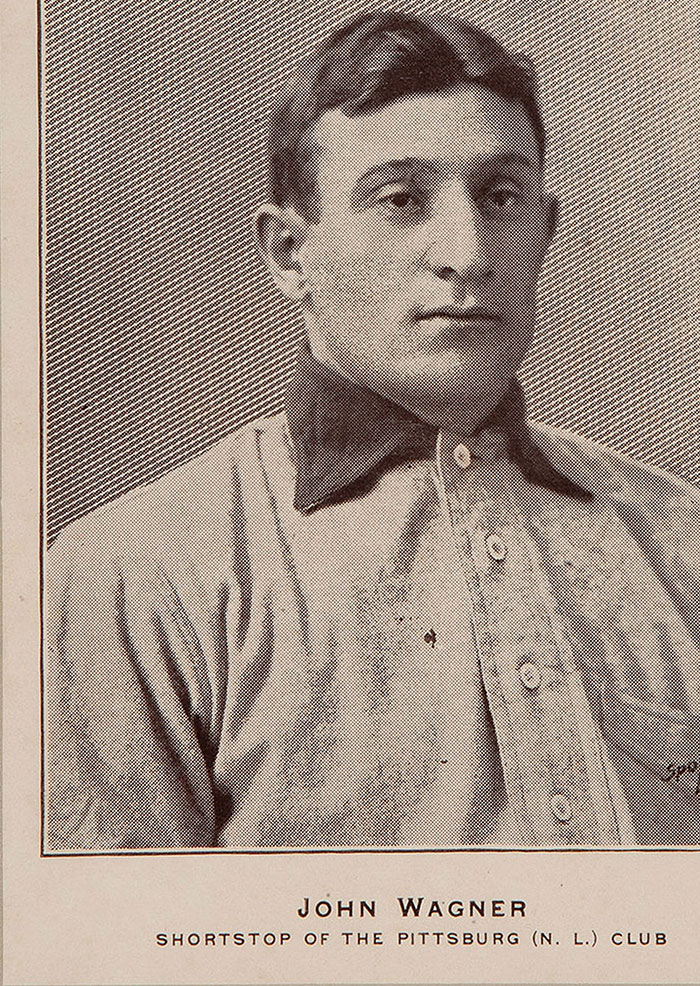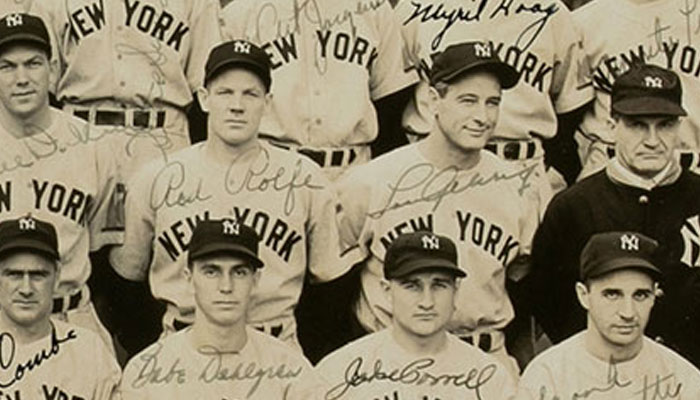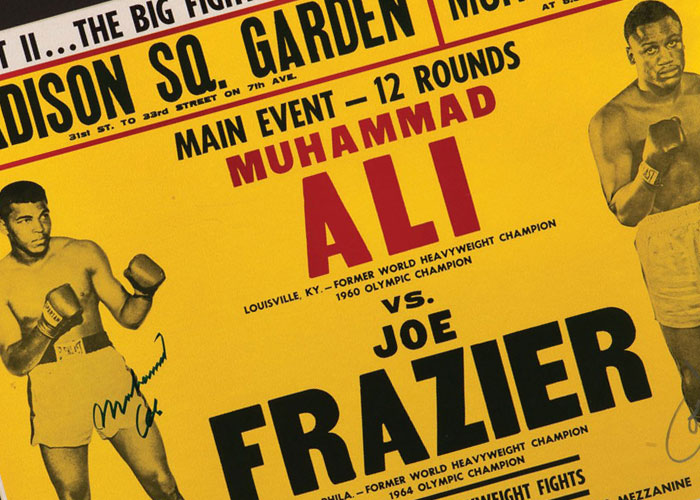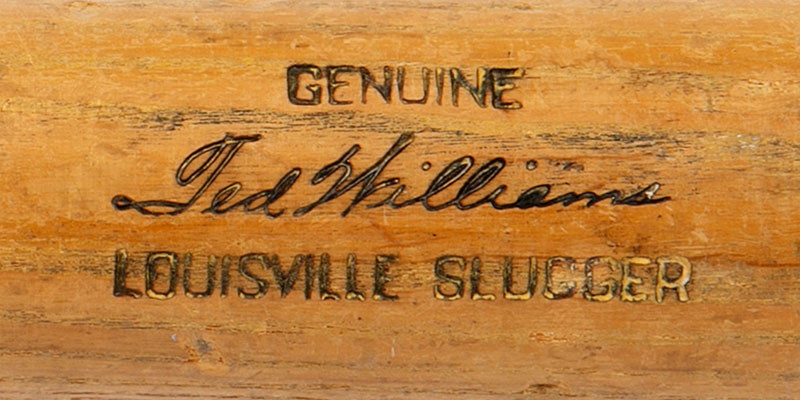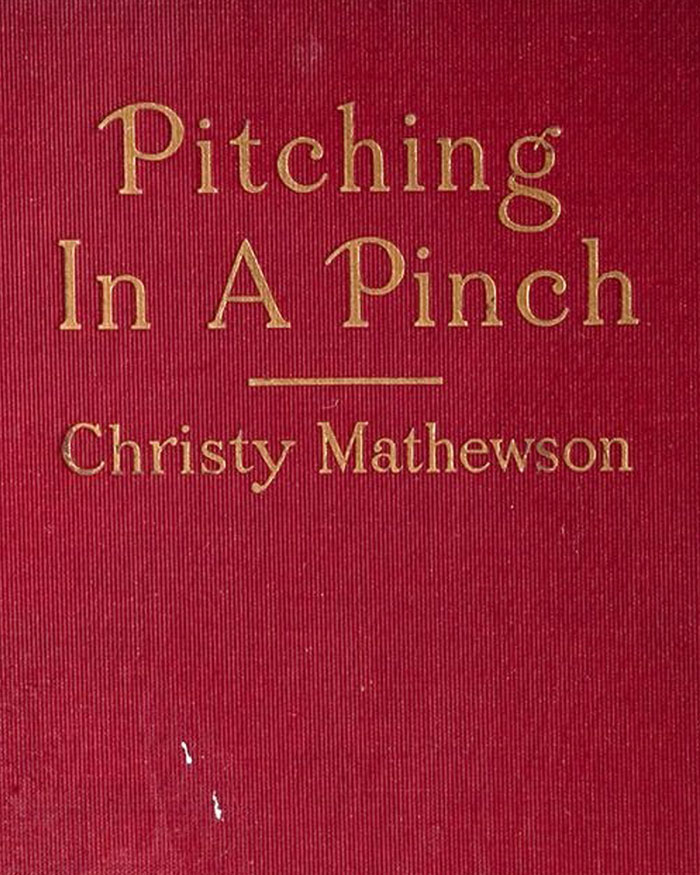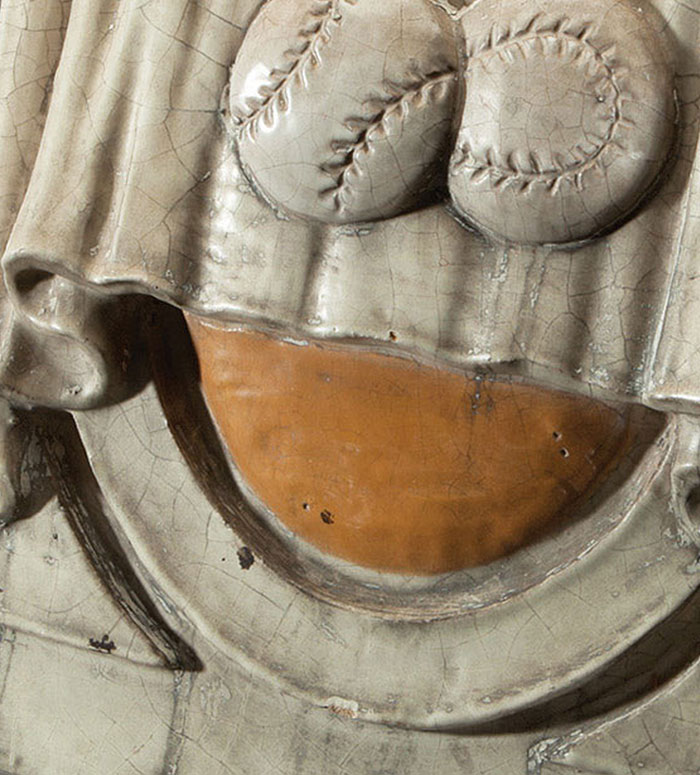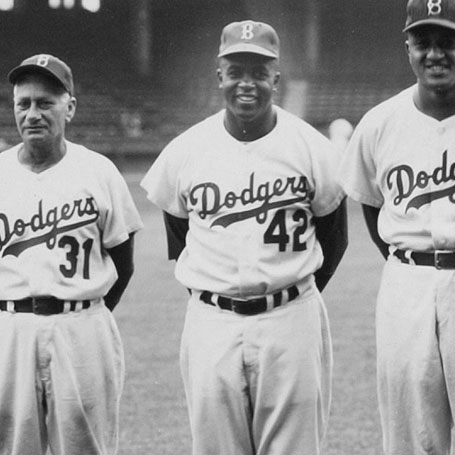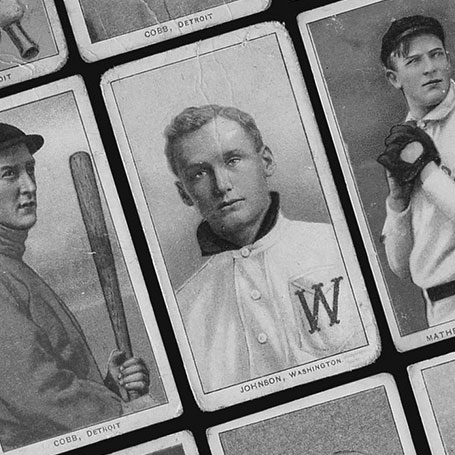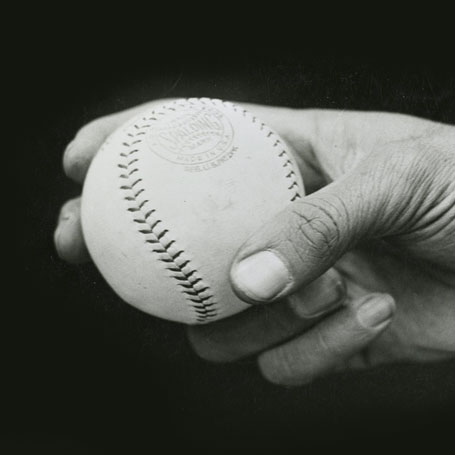1948 Jackie Robinson Signed Check Payable to The Atlas Hotel in St. Louis, Mo.
Jackie Robinson’s story is not only a compelling drama of heroism, but also a template of the African American freedom struggle. A towering athletic talent, Robinson’s greater impact was on preparing the way for the civil rights reform wave following WWII. Robinson’s integration of the Major Leagues is undoubtedly one of the game’s finest moments. His 1947 rookie season saw the pioneering ballplayer succeed beyond anyone’s wildest expectations despite facing relentless antagonism and unfathomable bigotry unlike any ballplayer before him had been subjected to. Robinson’s record in 1947 saw him not only helping the Dodgers win a pennant but also gain him the respect of the sportswriters who awarded him the first Rookie of the Year Award. However, in spite of his proven ability on the field, Jackie was treated as less than equal to his white teammates and opponents off the field. In many of the National League cities his team visited during his groundbreaking early seasons, Robinson was forced to endure the humiliation of staying apart from his teammates in segregated “Negro” hotels. At this time, Jim Crow laws forced African Americans to look for hotels and restaurants that welcomed “non-white” patrons. The main way for travelers to locate these services was in the “Green Book.” First published by Victor Hugo Green in 1936, the Green Book was essential for African Americans traveling to unfamiliar, and potentially unsafe locations. Green founded and published the Green Book "to give the Negro traveler information that will keep him from running into difficulties, embarrassments and to make his trip more enjoyable."
On road trips to St. Louis to play the Cardinals in the late 1940’s, Jackie Robinson’s white teammates stayed at the upscale and segregated Chase Hotel. Robinson was required to lodge separately and sought the accommodations of the Atlas Hotel, a Green Book recommended establishment on the edge of town. For two seasons Robinson endured the indignity of rooming away from his club, biding his time and waiting for the opportunity to change the Chase’s Jim Crow policy.
And that is the place Jackie Robinson was on June 5, 1948 when he wrote out this check for one night’s stay at the Atlas. That date corresponds to the last of a 4-game series against the Cardinals. The Saturday day game ended in favor of the Cards 9-6, evening up the series at 2 wins each. Robinson went 1 for 5 in the game. Why Robinson had to write a personal check for one night at the Atlas remains unknown, but it may be due to the team being unexpectedly held overnight in St. Louis and traveling to Cincinnati the following morning. In this last-minute need for lodgings, it would be easy for the Dodgers traveling secretary to arrange for rooms at the Chase on credit, but not at the Green Book Atlas – hence Robinson’s need to pay out of pocket.
Things would be different the following season. In 1949 Robinson was joined by regulars Don Newcombe and Roy Campanella, giving him the extra moral support he would need to crack open the wall of Jim Crow. Before Brooklyn’s first trip to St. Louis, The Chase gave Robinson, Newcombe and Campanella a compromise offer to let the trio stay with their teammates, provided they stay in their rooms and not use the lobby, bar or swimming facilities. The three decided to hold a vote, all agreeing to abide by the majority. Newk and Campy were offended by the “compromise” and voted to stay in a “Negro” hotel but Robinson voted to stay at the Chase. Breaking their agreement, Robinson integrated the Chase by himself, reasoning that despite the insulting restrictions he would none-the-less have his foot in the door of Jim Crow. In the end Robinson was proved correct as this chink in the armor of segregation gave way the next season to full integration of the Chase.
Originating from the Jackie Robinson estate, the $14.70 check is drawn from Robinson’s personal Chemical Bank & Trust account. Dated June 5, 1948 and inscribed to “Atlas Hotel,” it is signed “Jackie Robinson” in strong fountain pen. The check bears the expected cancellation perforations and stamping, some of which just slightly nicks the “J” in Jackie. The piece has been graded AUTHENTIC by PSA/DNA and encapsulated.
In the decades since Jackie scripted this check several generations of black athletes have followed Robinson and their dreams, donning uniforms and breaking records, step by step, changing the complexion of baseball and other major league sports and realigning this society's cultural structure. This check is an important civil rights artifact illustrating how Jackie Robinson’s fight for integration transcended baseball, affecting every facet of life for African Americans, taking steps which would soon make the need for a “Green Book” unnecessary.
